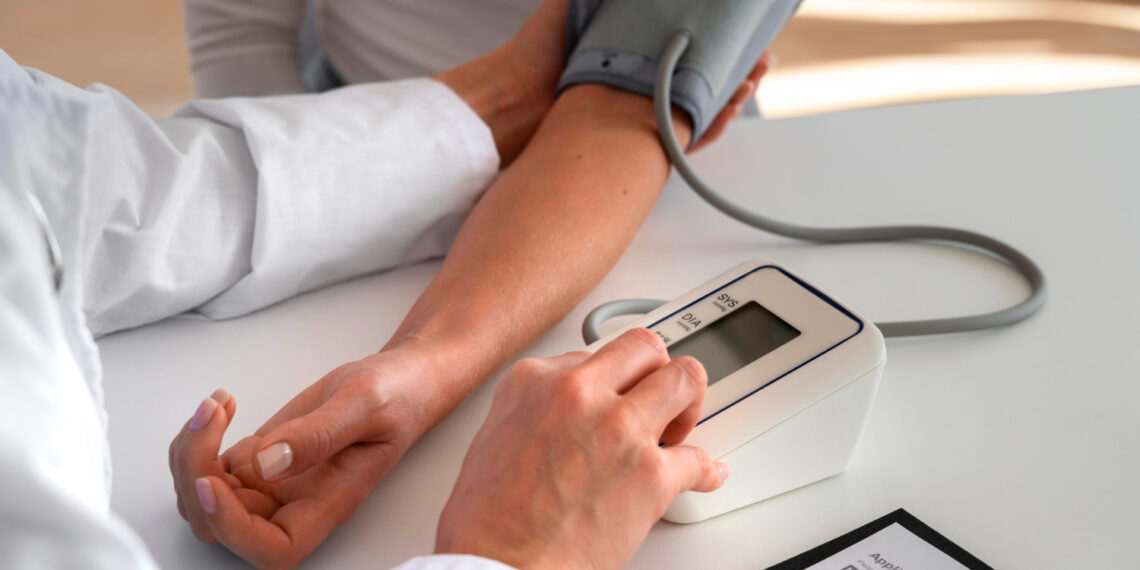One out of three adults worldwide (more than 2 Billion of the 6.02 Billion adults out of a total global population of 8.05 Billion) have high blood pressure and about 10 million of them die each year from complications of hypertension, like heart attack and stroke, or ruptured aneurysm.
In the United States, at least 48.1 percent of people (more than 164.5 million), 18 and older, have high blood pressure, highest among blacks. Sixty-three percent of those 60 and older have hypertension.
Recent studies from the Queen Mary University of London in the United Kingdom “have identified more than 100 new regions of the human genome and more than 2,000 independent genetic signals that appear to influence blood pressure.” These data may help physicians better predict a person’s risk of developing hypertension.
There are unmodifiable risk factors include ethnicity (genetic) and some existing health conditions. The modifiable risk factors (within our control) include lifestyle: diet, salt-intake, exercise, weight, smoking, and alcohol, which could help prevent then development of high blood pressure.
Caveats: (1) Teenagers should have at least one initial blood pressure check-up. If normal, one every 3 months thereafter. If high, prompt medical consultation is recommended. Adults should have their blood pressure checked at least once a month for those normotensives (normal BP) and every day for those with severe high blood pressure on medications; every week for those with blood pressure (medically) controlled at 140 systolic/90 diastolic. If it goes higher, or with symptoms, notify your healthcare provider; (2) NEVER miss any medications. Countless people suffered a stroke for missing to take their BP pills, even for a day; (3) Have a regular medical check-up at least once every 6 months; (4) Eat a healthy, mostly-plant-based diet with a little red meat once a week, a lot of fish, some fruits and nuts, exercise daily, no smoking, occasional 1-2 drinks with dinner; (5) DIY stress managing with mini-vacation or stay-cation.
Smoothies vs arthritis
Arthritis of the hips or knees, etc., means inflammation (“itis”) of those joints from natural wear-and-tear of aging and abuse. If you could see these joints, they will look red, inflamed, warm, and swollen, which causes the pain, just like in conjunctivitis (pink-eye) or skin infection.
Inflammatory food items, like the Night Shades veggies (tomato, eggplant, potato, pepper, paprika, etc.), red meat, especially processed meats, all cause inflammation in our body when consumed.
Independent global studies have shown that eating all types of berries (blueberries, strawberries, red berry, blackberries), pineapple, celery, broccoli, papaya, Brussel sprouts, cauliflower, mustard green, lettuce, sweet potato, are all anti-inflammatory food items; they prevent and quell inflammation.
Famous daily beverage in smoothies (even in a portable USB blender) containing pineapple and its juice plus celery, papaya, and all the berries listed above, imbibed at least two times a day effectively minimize if not totally relieve joint pains after drinking the smoothies for a month, allowing discontinuance of joint pain medications. It is really amazing when you hear patients boasting they have abandoned all anti-arthritis injections, medications, gel, and cream, and are living without arthritis pains after embarking on this anti-inflammation smoothies.
Rice and Diabetes T2
Medical researchers discovered a “troubling link between higher consumption of white rice and Type 2 diabetes mellitus,” which is of epidemic proportion in Asia and other regions where white rice is the staple food.
The investigations are also probing into the association of diets high in sugar and fats to this most common diabetes. Worldwide, about 350 million people have Type 2 diabetes, according to the US Centers for Disease Control and Prevention (CDC).
“What we’ve found is white rice is likely to increase the risk of Type 2 diabetes, especially at high consumption levels such as in Asian populations,” according to Qi Sun of the Harvard School of Public Health, who added that “the link emerged from an analysis of four previously published studies, carried out in China, Japan, Australia and the United States.”
The clinical investigations involved 350,000 people followed closely from four to 22 years, where 13,000 of them developed Type 2 diabetes.
Those studies conducted in Japan and China revealed that who ate most rice (three to four servings a day) had 55 percent higher risk to develop diabetes compared to those who ate least (one to two servings a week). The part of this research performed in Australia and in the United States, where people eat less rice, the difference was 12 percent.
Are soft drinks harmful?
Yes, very, but in a subtle way, and the damage they cause takes time to show. In a previous column, we condemned all soft drinks, which I called poison “liquid candy,” to be associated with Metabolic Syndrome among those who imbibed them. The cluster of conditions in this syndrome includes central obesity leading to high blood pressure, high cholesterol, insulin resistance, diabetes, heart attack, and stroke. I have stated, and am repeating it for emphasis, that soft drinks are subtle poisons to the body, for all of us, and especially for children. In my book in the USA, Let’s Stop “Killing” Our Children, I challenged parents to stop drinking soft drinks and to dissuade their children from imbibing soft drinks, diet, light, or regular, cola or uncola. They are all unhealthy. Saying “No” with wisdom to our children is a form of love.
Philip S. Chua, MD, FACS, FPCS, a Cardiac Surgeon Emeritus based in Northwest Indiana and Las Vegas, Nevada, is an international medical lecturer/author, Health Advocate, newspaper columnist, and Chairman of the Filipino United Network-USA, a 501(c)3 humanitarian foundation in the United States. He was a decorated recipient of the Indiana Sagamore of the Wabash Award in 1995, presented by then Indiana Governor, US senator, and later a presidential candidate, Evan Bayh. Other Sagamore past awardees include President Harry Truman, President George HW Bush, Muhammad Ali, Astronaut Gus Grissom (Wikipedia). Websites: FUN8888.com, Today.SPSAtoday.com, and philipSchua.com Email: scalpelpen@gmail.com
































